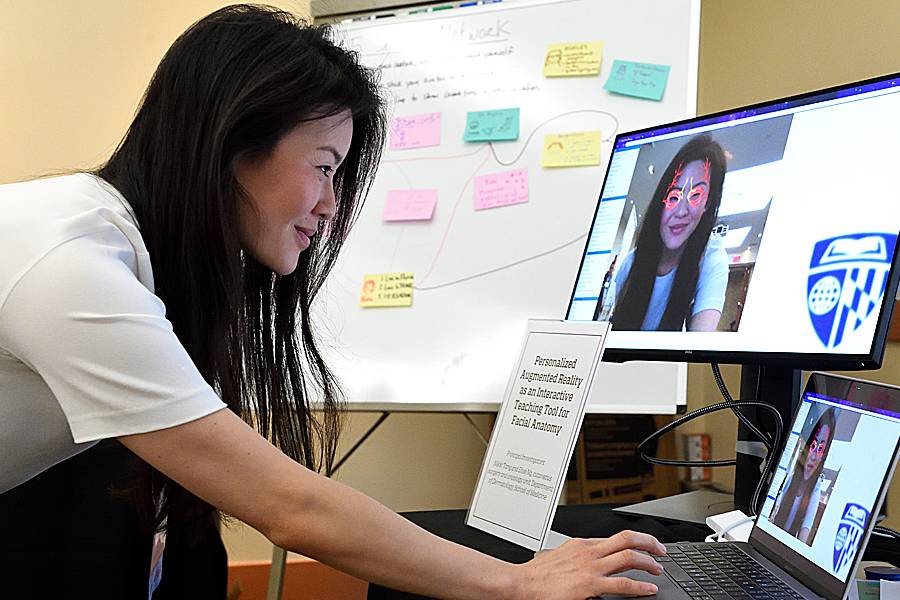A music-oriented hackathon, 3D surgery simulators, and video chats with health experts abroad—those were some of the fresh ideas that teams at Johns Hopkins came up with last year for the inaugural batch of DELTA grants. And now it's time for Round 2.
The Digital Education and Learning Technology Acceleration program is again seeking concepts that push the boundaries of teaching and learning through innovative use of digital technology. Proposals are due May 28 for awards of up to $75,000.
Sunil Kumar, JHU provost and vice president for academic affairs, announced the funding opportunity on Thursday at the DELTA Teaching with Technology Showcase, an event highlighting last year's six grant-winning projects, along with a variety of relevant resources and discussion topics. The conference gathered dozens of educators and other staffers from across Hopkins to consider new ways of unleashing the potential of technology in classrooms, both online and on campus.
"We have a second round of DELTA grants because we're so happy with how [the first one] went," said Kumar, whose office administers the program. He called DELTA "an affirmation of the university's view that innovation in this space is important."
The DELTA grants are made possible through proceeds from JHU's massive online open courses, or MOOCs. Over the past six years, Hopkins faculty have developed more than 70 MOOCs, garnering over 6.7 million total enrollments.
For the 2019 round of DELTA grants, teams are encouraged to explore areas such as pedagogy, media instruction, assessment, instructional design, and student services, among others. Proposals must include at least one full-time faculty member from Hopkins, but other Johns Hopkins faculty, staff, and students can be part of the group.
DELTA puts particular emphasis on ideas that involve cross-disciplinary collaboration. One of the 2018 grant winners, for example, brought together music students from the Peabody Institute with computer science and engineering students from the Homewood campus for a 24-hour challenge in February called Hacking Harmony. That event, which produced inventions such as the "robostrummer"—a device allowing prosthetic hands to play instruments&emdash;was organized by Susan Weiss, a professor of musicology at Peabody who holds a joint appointment in the Krieger School of Arts and Sciences.
Another 2018 grant winner, Voices From Afar, uses a new kind of video technology to capture conversations with public health experts from sites across the world, including Mexico City, London, and Munich. Scientist Sukon Kanchanaraska, who directs the Center for Teaching and Learning in the Bloomberg School of Public Health, has so far tried out the tech in six academic courses and one MOOC.
Pioneering digital education theorist and researcher George Siemens—author of Knowing Knowledge and director of the LINK Research Lab at the University of Texas, Arlington—delivered the keynote address at Thursday's event, exploring the ever-evolving landscape of technology in higher education.
"As goes information, so goes the future of the university," Siemens said, summing up his core message. He asked: "How do we create a system, a model of learning, that prepares people to be part of an ecosystem of knowledge?"
For more details on DELTA, go here, and review the full 2019 RFP here.
Posted in News+Info, Happenings








